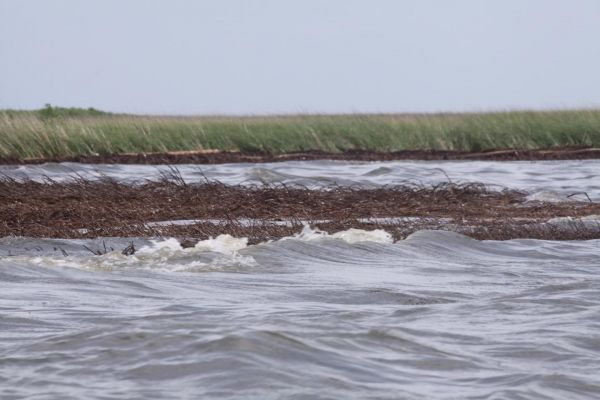A new Duke University-led study finds that the death of marsh plants due to disturbances like the heavy oiling from the Deepwater Horizon oil spill can double the rate of shoreline erosion in hard-hit marshes.
“The results from our field experiment unequivocally show that the loss of wetland vegetation increases the rate of erosion on wave-stressed shorelines by 100%,” said Brian R. Silliman, Rachel Carson Professor of Marine Conservation Biology at Duke’s Nicholas School of the Environment.
“These findings are going to make it hard for oil companies whose spills kill marsh grasses or mangroves on the edge of coastal wetlands to say that the loss of plants due to heavy oiling doesn’t have a long-term effect,” he said.
Some industry-sponsored scientists have theorized that the increased erosion of Louisiana marshes following the 2010 Deepwater Horizon spill didn’t stem from the spill itself. They say that Hurricane Katrina, which struck the coast five years earlier, was already causing the marshes to erode faster and that plant loss from the oil spill played a negligible role.
Read more at Duke University
Image: Duke University scientist Brian Silliman surveys marsh loss in St. Mary Parish, La. which he says was caused by oil from the 2010 Deepwater Horizon oil spill. (Credit: Duke University)


